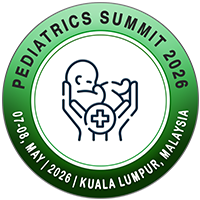.webp)
Sushma Gopalan
Aster CMI , IndiaPresentation Title:
Knowledge, Attitude and Perceptions (KAP) of parents regarding risks for unintentional childhood injuries
Abstract
Unintentional Injuries in childhood can have both long-term and short-term impacts on the child and family. As their nature is to be curious about their environment, children have the tendency to have falls and accidents. Parents, being the main caregivers are supposed to be responsible for their physical safety. In a low economic setting such as India, there is knowledge of the prevalence and type of injuries but not the parental perspective. This study attempts to understand the knowledge, perception, and attitude of parents toward risks of unintentional injuries. 191 mothers and 149 fathers completed the survey questionnaire; followed by a demographic and percentage analysis. The current study found that the majority of the fathers and mothers agree on similar components of Knowledge and Attitude. However, there was a significant difference in terms of perception of risk and hazard with respect to the severity. This forms a basis for outlining customized programs to equip parents in assisting them to manage the safety aspect of their children. The strengths and limitations are mentioned. The findings have domestic, social, and health care policy-level implications.
Biography
Sushma Gopalan has a Master's in Genetics, Psychology, and has completed her PhD in Psychology. She is heading the Psychology Unit, Child Life Services at Aster CMI, Pediatrics. She has conducted many community outreach programs to educate families, caregivers, and children on the importance of Child Safety – both physical and mental aspects under the guidance of Dr Chetan Ginigeri. Her role involves providing support and psychological interventions for children - Child and family counseling, planning, interventions, and implementation of coping strategies for families to function better as a unit, even in cases of families with special needs children or family discord. Parent Training, management of parental challenges, handling issues associated with grief, trauma, bereavement, PTSD, and PPD in addition to depression, stress, anxiety, adolescent stressors, suicidal ideation, self-harm, body image issues, substance abuse, addiction, and somatic disorders are also some of the challenges she addresses.

